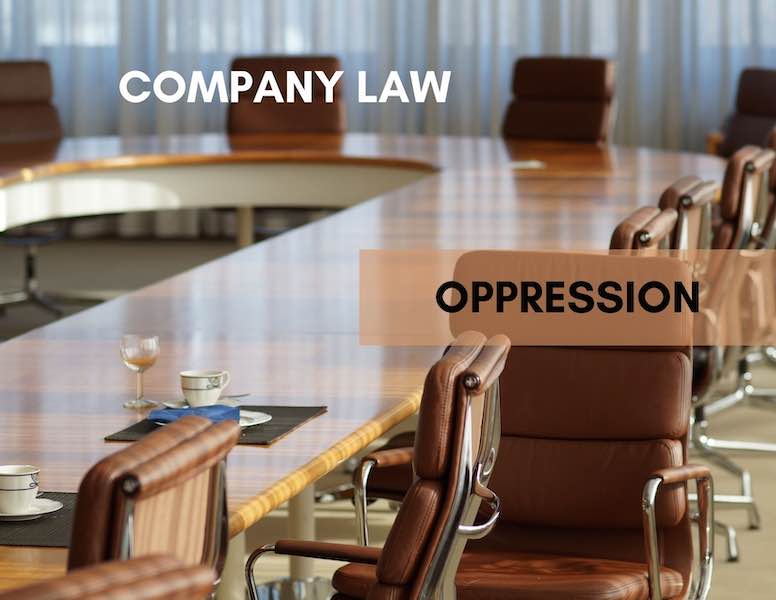The Screams from the Other Side: The Oppressed Majority
by Rachel Ng Li Hui ~ 9 March 2021
INTRODUCTION
Oppression actions under Section 346 of the Companies Act, 2016 (“S346”), are usually filed by minority shareholders who were unfairly prejudiced. At first glance, it seems counterintuitive that the majority shareholder can be oppressed as one would typically associate strength with numbers. Unsurprisingly, S346 is typically characterized as a form of “minority shareholder protection”.
However, do numbers alone preclude majority shareholders from being oppressed?
Such a question may arise in situations where the majority shareholder provides funding and leaves the day-to-day running of the company to the minority shareholder.
This article attempts to answer the above question.
OPPRESSION 101
Before unravelling the intricacies of an oppressed majority, it is useful to understand the basic workings of the oppression remedy under S346.
S346 outlines what constitutes oppression and its remedies, which include winding-up, buyback of shares, etc.
The Privy Council case of Re Kong Thai Sawmill (Miri) Sdn Bhd v Ling Beng Sung [1978] 2 MLJ 227 is instructive in holding that there must be a visible departure from the standards of fair dealing and a violation of the conditions of fair play which a shareholder is entitled to expect before a case of oppression can be made.
Courts have found, among others, the following conducts to be oppressive:
- Withholding dividends whilst high salaries are drawn by the directors who hold the majority voting power;
- Financial impropriety;
- Autocratic conduct by the directors holding the majority voting power;
- Serious mismanagement of the Company; and
- Failure to hold annual general meetings and to lay accounts.
What constitutes oppression is succinctly explained by Abdul Malik Ishak J in Tan Kian Hua v Colour Image Scan Sdn Bhd & Others [2004] MLJU 178 wherein “the critical test to show oppression is whether there is commercial unfairness.”
THE MAJORITY CAN BE OPPRESSED
S346 states that “any member” can seek relief herein. Thus, it appears that the remedies under S346 are not confined to minority shareholders. Notably, the Court in Kumagai Gumi Co Ltd v Zenecon-Kumagai Sdn Bhd & Ors and Another Application [1994] 2 MLJ 789 share this view, and went on to note that remedies under S181 of the Companies Act 1965 (now S346) are available to majority shareholders who are not in control of the company and who are unable to control the board:
“In Ramashankar Prosad & Ors v Sindri Iron Foundry (P) Ltd & Ors, 11 when dealing with the Indian provision which is the equivalent of s 210 of the UK Act, it was held that the Indian section was not limited to minority shareholders. The reasoning is interesting. The UK s 210 falls under the statutory heading written into the Companies Act 1948 entitled ‘Minorities’. Such a heading is absent in the Indian provision and equally in our own provision. I would therefore agree with the view expressed by Mitter J in Ramashankar Prosad 11 and hold that relief under s 181 is available to majority shareholders who are not in control of the management of the company and who, for any given reason, are unable to control the board, eg because they have agreed to a management power sharing formula in a separate agreement among the shareholders.”
The above is followed by the Federal Court case of Owen Sim Lian Khui v Piasau Jaya Sdn Bhd & Anor [1996] 1 MLJ 113.
See also: Ng Kek Wee v Sim City Technology Ltd [2014] SGCA 47
WHEN CAN THE MAJORITY BE OPPRESSED?
(1) Insufficient Voting Power
In Re H R Harmer Ltd, the defendant therein was a minority shareholder, whilst his sons had the majority of the shares. However, the defendant and his wife had more voting power (49% and 29% respectively). The sons then brought an oppression action against the defendant for breaching various directors’ duties, removing valuable employees of the company’s related entities, and negotiating unauthorized sales of corporate assets. The Court of Appeal then granted the sons reliefs and cited the trial judge’s reasoning for doing so:
“It remains, in my view, a question for the court to decide on the whole story, as revealed in the evidence, whether the affairs of the company are being — it has to be a state of affairs continuing at the date of the petition — conducted in a manner oppressive to some part of the members. I do not know that it has any particular bearing on the case, but this case is curious in that it is not a minority beneficial interest that is being oppressed, and that would be the normal case; it is a majority beneficial interest which is being oppressed because the voting control is placed in the hands of a minority beneficial interest. In my judgment, I reach the opinion — because that is what I have to do — that at the date of the presentation of this petition the affairs of the company were being conducted in a manner oppressive to the petitioners.”
Hence, the lack of voting control by the majority shareholders can lead to them being oppressed, and consequently, be entitled to the reliefs under S346.
(2) Neutralized Voting Power
The majority shareholders’ voting power can be neutralized when the minority shareholder has negotiated himself into a position where he possesses certain control (sometimes veto control), often coupled with an entrenchment of his presence on the Board of Directors or the exclusion of the majority shareholders’ participation in management. In such situations, even though the majority shareholders have more than 50% of the voting control in a company, the exercise of his rights are illusory.
In Sturgess v Dunphy [2014] NZCA 266, the majority shareholder in a joint venture company. Here, the shareholder agreement vested governance in the Board of Directors, whose decisions must be unanimous. Further, the shareholder resolutions therein required the votes of an ordinary or special majority of shares in each of the 3 shareholder groups (2 by the majority, and 1 by the minority). In effect, any one director or shareholding group can veto any decision by the majority shareholders:
“Mr Geiringer accepted that it is possible for a minority shareholder to behave in a manner that oppresses a majority. That is manifestly correct. The section provides that any shareholder may seek relief, so precluding what would amount to a presumption that a majority cannot invoke it.41 In the ordinary way a majority shareholder controls the company’s affairs itself through its command of the general meeting, but the legislation recognises that the locus of corporate power is a practical question of fact and law.
…
But Mr Sturgess was also JSAL’s nominated COO under a management services contract that the Board could not terminate, and because he was a director the Board was substantially powerless to discipline any unauthorised conduct in his managerial capacity. (The agreement could be terminated for breach, but of course the Board would have to make that decision.) It is we think manifest that Mr Sturgess enjoyed the capacity, as a matter of fact and law, to behave in a manner that oppressed the majority shareholders.”
See also: Richardson & Wrench Holdings Pty Ltd [2013] NSWSC 1990:
“The insertion of article 44A, if valid and effective, would have the effect that the majority shareholder was unable to exercise voting control… It seems to me, on its face, that an act by directors representing a minority beneficial interest to effect a change in the articles of association such as to deny the majority the ability to carry an ordinary resolution in a general meeting is an act that is, within the language of the statute, oppressive to, unfairly prejudicial to or unfairly discriminatory against the majority. The concept that, to effect any business at a general meeting, the majority should require the assent of the minority when it had not acquired its shareholding on that basis at the outset and when that position was, in effect, foist on the company by the minority while temporarily in control, is plainly, in my judgment, within the test of oppression.”
(3) Circumvented Voting Power
There are situations where the minority shareholder would employ questionable means to impede the majority shareholders’ rights.
In Parkinson v Eurofinance Group Ltd [2001] BCLC 720, the minority shareholders devised a plan to exclude the majority shareholder from the management of the company, using a series of complaints to justify his dismissal (although it was found that nothing the majority shareholder could have said in response would prevent his removal). The majority shareholder had left meetings before they were concluded and was escorted off the company’s premises by security guards without being permitted to remove anything from his desk, in a deliberate attempt to humiliate him in front of his employees. The minority shareholders even resolved to sell his shares in another company which the minority shareholder had the majority power.
Here, the oppressive actions could not be easily remedied as the majority shareholder had been excluded from the board. Although technically still able to exercise voting control, it would be highly unrealistic to expect the majority shareholder to be able to do so given the circumstances. Thus, he was entitled to the remedy.
CONCLUSION
Majority shareholders can be oppressed when their voting powers are curtailed and are entitled to the reliefs under S346.

